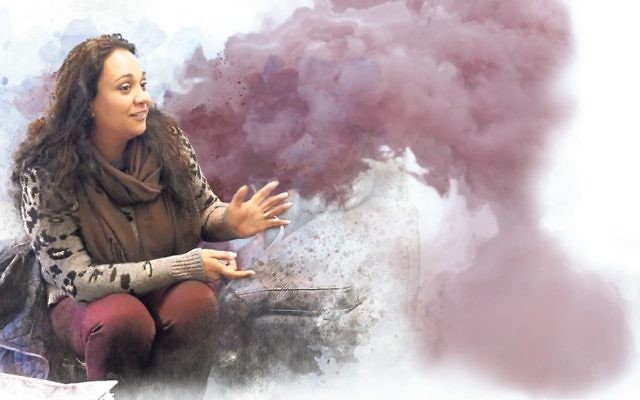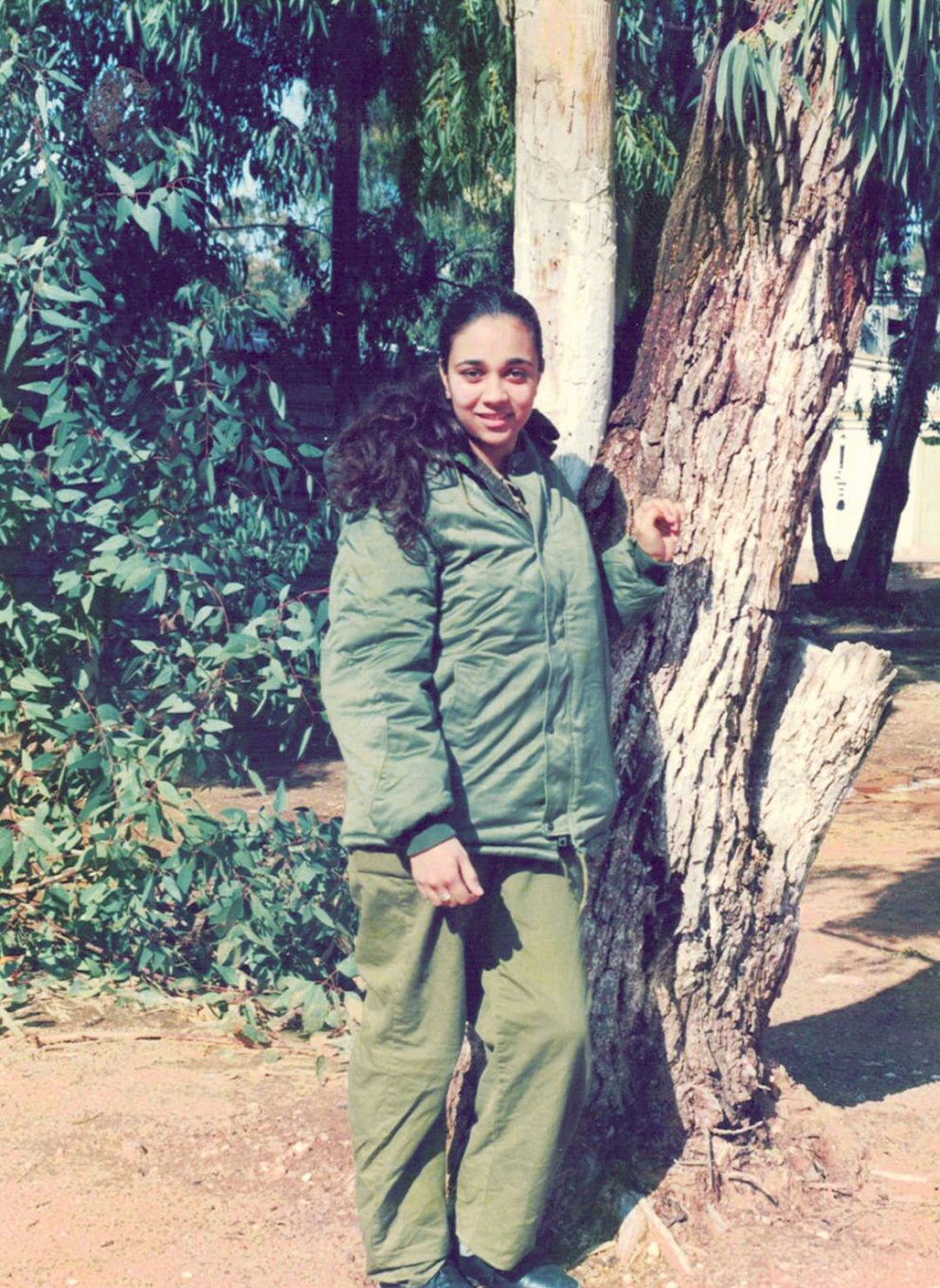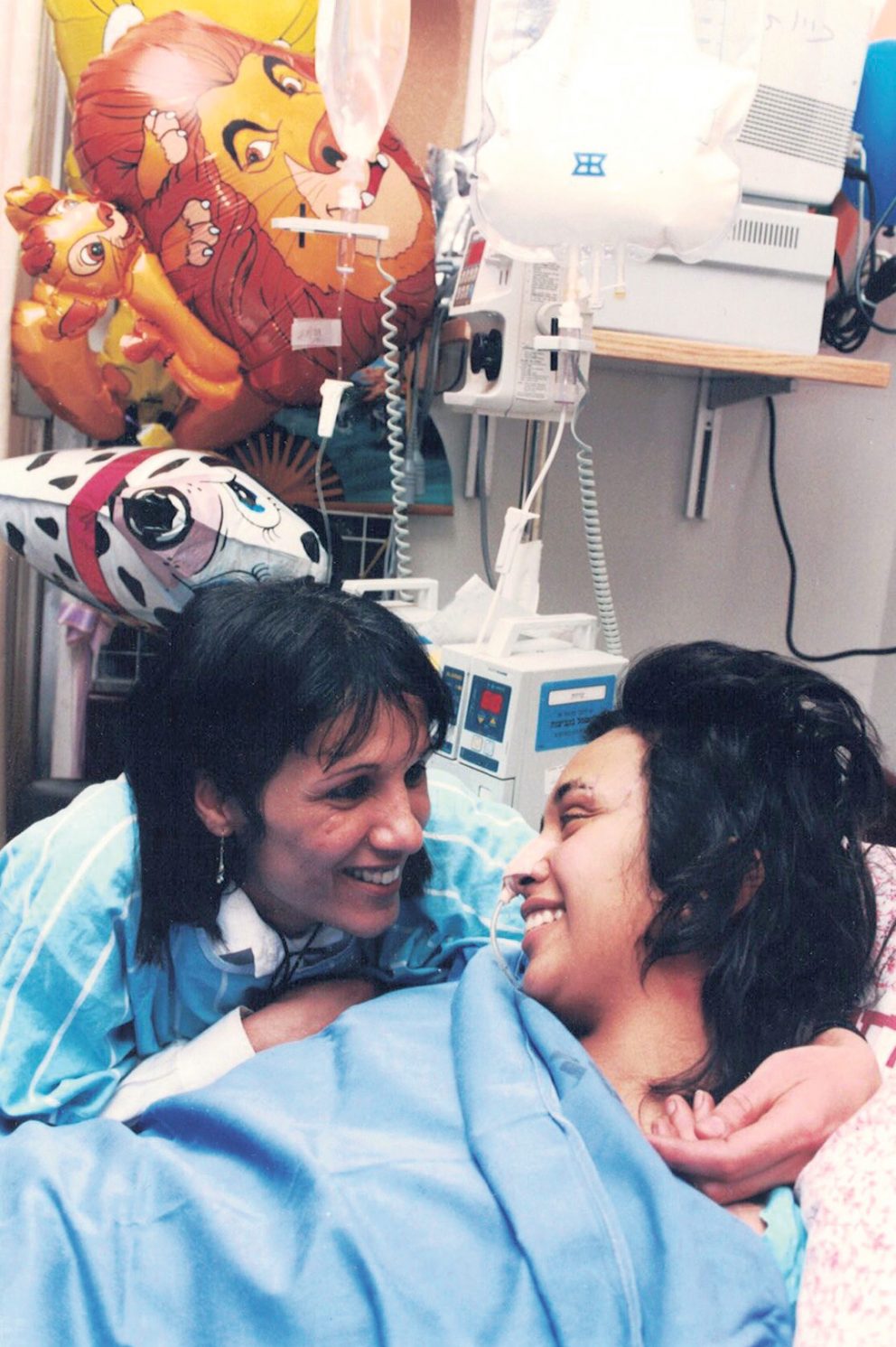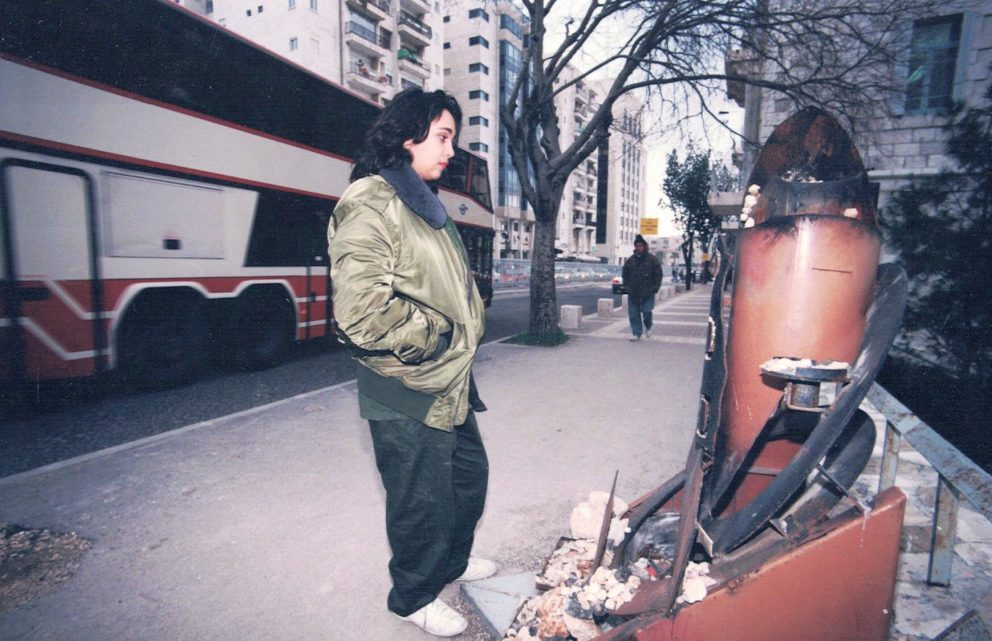Triumph over terror
On Monday it was 23 years since Dana Pinhasov was the victim of a terrorist attack in Jerusalem. She shares her inspirational story of resilience and courage with Rebecca Davis.
On Monday it was 23 years since Dana Pinhasov was the victim of a terrorist attack in Jerusalem. She shares her inspirational story of resilience and courage with
Rebecca Davis.
On February 25, 1996 Dana Pinhasov’s world changed forever.
It was a Sunday morning when the then 21-year-old began to make her way back to base after the weekend. She was a medic with the border police – born and raised in Jerusalem – and each morning her mother would drive her from their loving family home in Katamon to the Central Bus Station.
But she did not make it to work. On that morning, Dana’s mother was unable to drive her to the Central Bus Station.
So, on that morning, Dana caught the number 18 bus at 6.15am.
When she began her journey, she sat behind the driver. Then, close to Jaffa Gate, the bus stopped and a suicide bomber boarded.
He detonated his bomb on Jaffa Road, just before arrival at the Central Bus Station.
“The place I was sitting was horrible, because it was exactly above the gas tank,” tells Dana during her visit to Melbourne to speak at various functions for Zahal Disabled Veterans Organisation (ZDVO) Beit Halochem.
So, as the bus erupted into a fireball, Dana was the first to feel the impact. She hit her head on the glass window, losing consciousness as her lower body was engulfed in flames.
“I was there for about 20 minutes before they started taking out the dead bodies and realised that I was somehow alive.”
Dana was considered one of the “lucky” ones.
News footage of the incident is shockingly grim: the mangled skeleton of the charred bus is all that remains, as lifeless bodies lie strewn across the road up to 100 metres away, stretchers rush by in a blur, bundled into the backs of ambulances by soldiers and paramedics, while Orthodox workers meticulously search for and gather scattered body parts for burial, amidst a sea of metal shards and carnage.
The terrorist had worn a 10-kilogram bomb packed with nails, ball bearings and bullets in the attack which tragically killed 26 (17 civilians and nine soldiers), and injured 49 others. On the same morning, a second bus exploded near Ashkelon killing one Israeli.
Hamas claimed responsibility for both attacks which were masterminded by Mohammed Deif. Today, Deif is the commander-in-chief of Iz al-Din al-Qassam, Hamas’ military wing – and is Israel’s most wanted man.
Dana was rushed to Hadassah hospital at Ein Kerem. For the first four hours, she was known only as “unidentified victim number one”. Once she was finally identified, Dana’s parents were called and told to say their goodbyes. Her burns were very severe as was the internal damage sustained to her lungs.
Dana’s father told news reporters shortly after arriving at the hospital, “I said to myself, I am going to collect my daughter’s corpse.”
But her parents and three brothers had faith, and kept a constant bedside vigil while she remained unconscious and connected to a respirator.
“It’s a matter of time. With God’s help she’ll make it. She’s strong enough to make it,” Dana’s father told media at the time.
Ten days later, Dana awoke, “but with no recollection of how I got there”, she shares. “The only memory I did have was going to the movies the night before with my boyfriend, and driving home tired. I thought I had crashed my mum’s car.
“They told me what happened, and I was like, okay … that kind of thing happens to other people. But thank God the car is okay, and no one is blaming me for it. That’s okay!” says Dana.
She can laugh now as she tells the story. But back then, that moment of consciousness marked the beginning of “three long, excruciating months of pain”.
“I had 17 surgeries, skin transplants and skin grafts,” she reveals.
“I screamed. In order to prevent infections with burns, they have to cover you all the time, so that means bandage replacement two or three times a day.”
And then came time for her first bath. Dana asked for her father – “the only person I knew who would be able to cope with what I was going through, so I said, I want him next to me.”
It was also the first time that Dana saw her legs since the bombing.
The nurses put her in the tub, and with her father holding her hand, they started peeling back the rounds of bandage.
Dana kept her focus on her father and through a torrent of tears they tried to convince and reassure each other that it “wasn’t so bad”.
“My legs looked like a quilt. Small squares of different colours attached by a staple gun to one another.
“I don’t think there is anything that could have prepared me for that.”
There was also the emotional damage that Dana had to endure.
“I was in pain and thought I didn’t deserve this. I am 21. Why? Why did I get this?”
She tried to push away her boyfriend, but he wouldn’t leave.
“I didn’t want anyone to stay because he is sorry for me. So, I was even more mean … And he still didn’t go!
Dana asked him why he remained by her bedside. His response was simple: “You are still the same person I fell in love with and I’m not going anywhere.”
“But I think at that point in time, I saw my life end,” she tells.
“I used to love wearing shorts and mini-skirts and going to the pool, and oh my God, what will happen to me now I’m scarred. Everyone will look at me, everyone will stare at me.”
Dana’s boyfriend never left – and last June they celebrated 20 years of marriage.
And despite her scars, she proudly wears shorts in summer.
“It took me a couple of weeks there to realise that my body may have been completely dysfunctional, but my brain was completely okay. There were old people and people with different problems there, and I didn’t feel it to be my place.”
Dana already had her sights set on returning to work.
“They thought I was crazy – but I did it,” she affirms.
This was when ZDVO Beit Halochem entered her life.
There are four Beit Halochem centres in Israel, each one supporting the care and rehabilitation of Israel’s 51,000 injured soldiers, victims of terror and their families. They offer an array of sporting, cultural, social and rehabilitation facilities, serving to assist members to maintain physical fitness and emotional well being.
Dana underwent physiotherapy and hydrotherapy at the Jerusalem centre, “and I got to spend time with people who were worse than what I was. They were amputated, they were in a wheelchair, and they actually showed me that there is a light at the end of the tunnel”.
“You can play sport, practise art, and you can have a family. You can have a normal life and it’s not the end of the road for people like me.”
Dana took it day by day. She had to learn how to walk again, first with a walker, then a cane – “but I didn’t want to use all those things. I wanted to walk normally. I didn’t want anyone else to see that I had any kind of difficulties”.
And soon she did.
“I think that only my parents’ strength walked me through those painful moments and made me realise that I’m much more than my injury. And today, I know that I am much more than that. But it took a long process to understand and to accept who I am.”
Dana soon returned to the border police for the first half of each day, before her afternoon treatment at ZDVO.
In time, she became a mother to four children.
But the combination of her injuries, motherhood and working for the border police were eventually too much, and by the age of 27, Dana was forced to retire.
“I still wanted to be influential in the world – and it didn’t have to be a day job.”
She started volunteering, first in children’s shelters, then retirement homes, and then it occurred to her to give back to the place that gave her so much.
Dana began volunteering at ZDVO “to show younger veterans that there is a light at the end of the tunnel” – but she still had more to contribute.
She was elected the first woman to sit on the national board of directors of Beit Halochem Israel and oversaw the building of the fourth ZDVO facility, based in Beersheva, and the beginning of a fifth campus at Ashdod.
She also set up Kids of Courage, a ZDVO project dedicated to the children of disabled veterans and terror victims, recognising that they often have to take care of their parents and “don’t really have a childhood”.
The initiative gives the children a four-week summer camp experience in Canada in their bar/bat mitzvah year.
“It is a way to remind them that it is okay to be kids again, and enjoy life and smile and be responsible for no one but themselves,” tells Dana. The program, “her fifth child”, has now been running for five years.
On Monday, it was 23 years since that fateful morning on bus number 18.
“Each year, I have two birthdays, November 7, the day I was born, and February 25, the day I was reborn,” shares Dana.
For the past few years, she has penned a letter to herself on the anniversary, to understand “how that single event has affected the person I am today”.
In last year’s letter, Dana mused on all that she went through at the time of the bombing.
“I could, back then, 22 years ago, have given up. I was disabled, a scarred woman, and terrified of the new situation. But something within me simply went on without going over the obstacles.”
She writes of how she eventually learned to “embrace herself with love” in order to flourish, and with acceptance of her new reality was able to reinvent herself to create a full life. But it was not without more challenges to come – Dana’s husband was diagnosed with cancer, and a contractor who renovated their home absconded with a substantial amount of money.
“I realised I was a shark. Sharks only swim forward. They do not stop for a moment, because life is like that. I knew that if I pause for a moment to feel sorry for myself, or to cry for my fate, life will go on without me.
“Today, I understand that this is one of the gifts that I received when I chose to continue living – that inner understanding that we must continue forward even if bumps on the road slow us down.”
To find out how you can get involved or donate to ZDVO Beit Halochem Australia, visit zdvo.com or call (02) 8332 2614.





comments